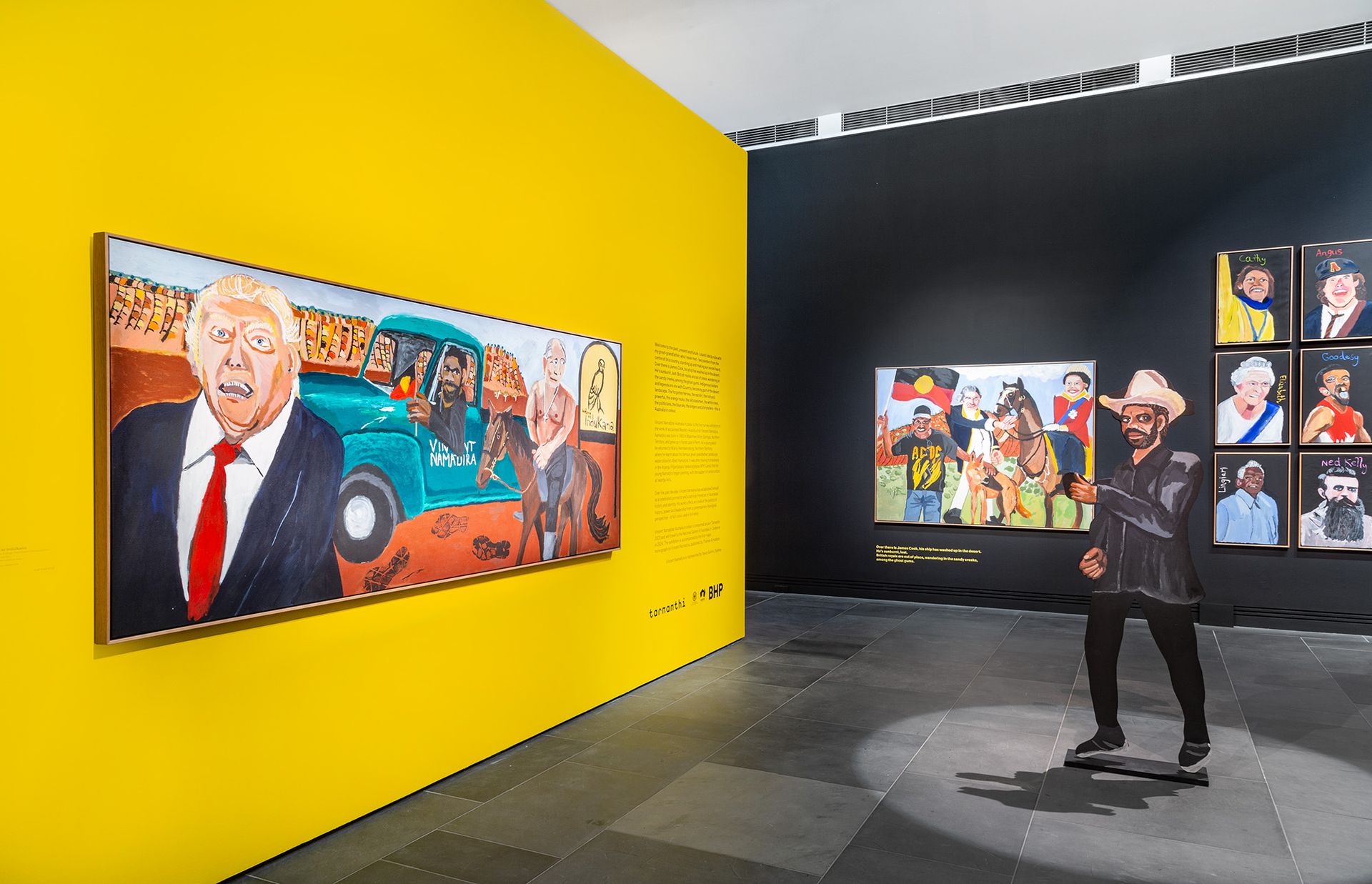After a week in which Indigenous leaders urged Australians to reflect on the role of “racism and prejudice” in voting down an Indigenous voice to parliament at last weekend’s referendum, Indigenous artists from across the country have gathered in Adelaide, South Australia for Tarnanthi festival.
Taking place in the wake of an outcome that Tarnanthi’s artistic director, the Indigenous artist Nici Cumpston, acknowledges was “deeply devastating” and at a time of “deep reckoning” for Australians, coming together “gives us strength,” she tells The Art Newspaper.
Despite the result, for Cumpston very little has changed: “Although I’m personally very disappointed, I feel that we all have such deep hope…artists are still making work, nothing’s going to stop us from telling our stories,” she says.
Now in its eighth year, Tarnanthi 2023 includes the work of more than 1,500 Aboriginal and Torres Strait Islander artists at the Art Gallery of South Australia, a two-day art fair at Adelaide Entertainment Centre, and satellite events across the state.
For the artist Vincent Namatjira from the Western Aranda region near Mparntwe (Alice Springs), whose exhibition Australia in Colour is on as part of Tarnanthi, the lead up to the vote felt like the “end of world”, he tells The Art Newspaper, adding: “[I’m] burning inside about the result”. For Namatjira the referendum was “a door opening for my countrymen and my people to be recognised and acknowledged.”
Today, Namatjira is surrounded by portraits he has painted over the past ten years; prominent Indigenous figures including the singer Archie Roach, the activist Eddie Mabo, the Olympian Cathy Freeman and a scattering of self-portraits. Alongside them hang a rogue’s gallery of rich, powerful and influential figures, including Captain Cook, Australian politicians and members of the British royal family. In some paintings Namatjira appears next to the subjects, most are depicted in the Central Australian desert, “out of their comfort zone,” Namatjira says.

An installation view of Vincent Namatjira’s Australia in Colour at Tarnanthi 2023, Art Gallery of South Australia in Adelaide Photo: Saul Steed
The exhibition also features works by “the old man”, Namatjira says, referring to his great-grandfather, the late artist Albert Namatjira who met the Royal family in 1958.
Unexpectedly, Albert Namatjira was swept into the political fray when he was name-checked in a speech by the outspoken “No” campaigner, the Indigenous Senator Jacinta Nampijinpa Price, at the National Press Club in September.
In an incendiary speech, that included claims colonisation had “no ongoing negative impacts” on Indigenous Australians, Nampijinpa Price listed Namatjira alongside other Aboriginal and Torres Strait Islanders who had made “incredible contributions” to Australia, without “trying to tear it apart”.
The fact that Albert Namatjira only received limited citizenship a year before his death and at a time when Aboriginal people were not considered citizens, appears to have been lost on Price. “That comment about Albert was appalling, and very disturbing,” Namatjira says.
Although it was Prime Minister Anthony Albanese who initiated the referendum, the concept of constitutional recognition for Aboriginal people had bipartisan support for decades. As recently as February, the federal opposition leader Peter Dutton attended government-lead referendum working groups.
But when his coalition colleague, the Nationals party leader David Littleproud, announced there was “no position” under which he could support an Indigenous voice to parliament last November, it set the scene for Dutton’s change of heart. In a country where only referendums with bipartisan support have succeeded, their actions were a death knell.

An installation view of Vincent Namatjira’s Australia in Colour at Tarnanthi 2023, Art Gallery of South Australia in Adelaide, Photo: Saul Steed
What followed was a months-long “No” campaign that regularly traded in misinformation and obfuscation aided by Murdoch-owned media commentators who regularly denigrated all aspects of the Voice to parliament. On the day of the vote, the Sky News presenter Rita Panahi labelled it “a militant document penned by far Left, inner city activists,” in a post on X (formerly Twitter), when in fact it was co-designed by many respected Indigenous leaders including the lawyer Noel Pearson.
Employing tactics many now associate with hard-right politicians, the “No” campaign accused its opponents of the very thing it was guilty of, divisiveness—and it worked; over 60% of Australians voted against it.
Although Namatjira acknowledges the result, he is quick to point to one undeniable fact, “this country is and always will be Aboriginal land, forever,” he says.







![Chainlink [LINK] Surges 25% In Weekend Rally: What’s Behind This?](https://lbnntv.com/wp-content/uploads/2023/10/Chainlink-LINK-Surges-25-In-Weekend-Rally-Whats-Behind-This-120x86.jpeg)

